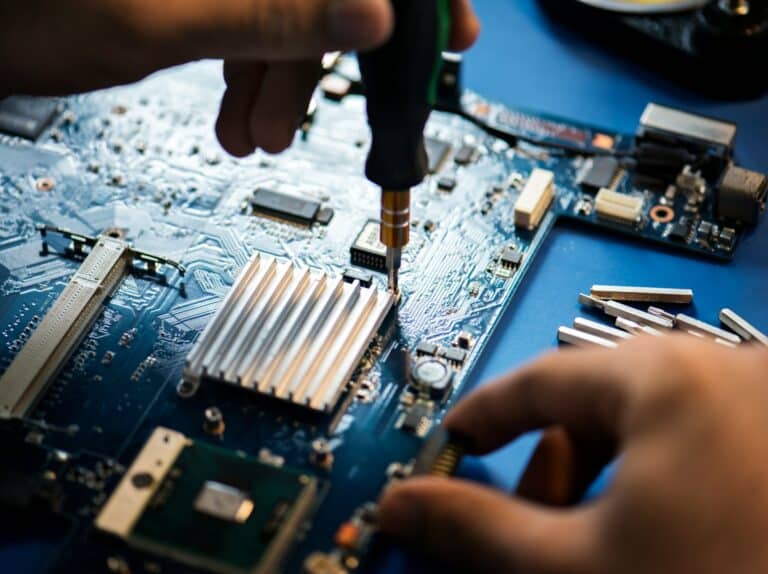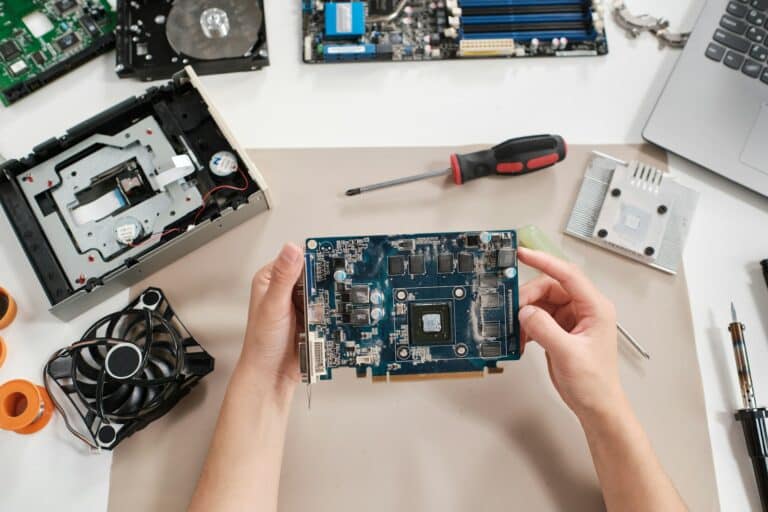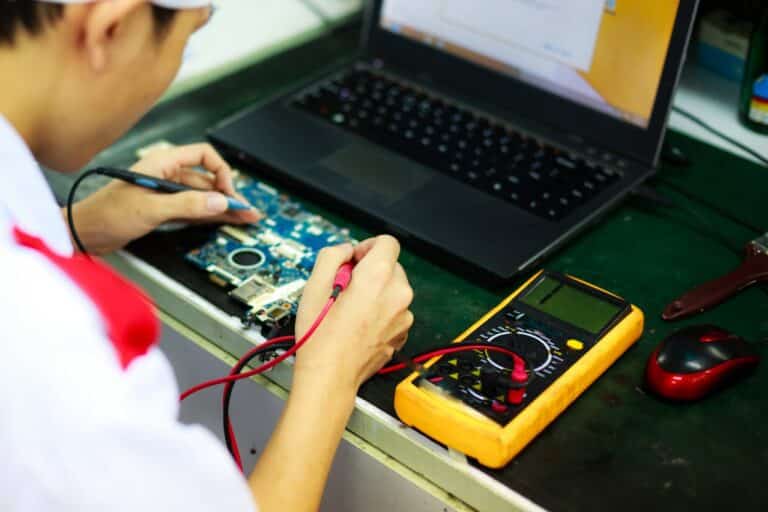Have you ever wondered what happens to the electronics you throw away? As the digital era continues to progress, there is an ever-growing need for the proper disposal and recycling of obsolete electronics. IT Asset Disposition (ITAD) and recycling serve as a subject worth exploring for the protection of the environment and the security of businesses. This article delves into the world of electronics recycling, from its importance to the process behind it, and how Beyond Surplus can assist you in making the right choices for your business’s electronic waste.
Electronics recycling, also known as e-waste recycling, involves dismantling and reclaiming valuable materials from electronic devices that are no longer in use. This practice offers numerous benefits, from conserving natural resources and reducing pollution to providing businesses with a secure and safe method for the disposal of sensitive data. Beyond Surplus, an industry leader in ITAD and electronics recycling, offers comprehensive services designed to cater to the unique needs of each client, ensuring the safe and responsible management of discarded electronics.
The Importance of Electronics Recycling
Protecting the Environment
One of the primary reasons to engage in electronics recycling is the protection of the environment. Many electronic devices contain hazardous materials, such as lead, mercury, and cadmium, that can cause significant harm if they end up in landfills and leach into the soil and water supplies. Proper recycling helps prevent this contamination and minimizes the negative impact of e-waste on the environment.
Conserving Natural Resources
Electronics recycling also conserves natural resources by reclaiming valuable materials, such as gold, silver, copper, and aluminum, from discarded devices. These materials can then be reused in the production of new electronics or other products, reducing the need for further resource extraction and lessening the overall environmental footprint of the electronics industry.
Reducing Energy Consumption
Recycling electronics conserves energy by eliminating the need to produce these materials from raw materials through mining and other resource-intensive processes. According to the Environmental Protection Agency (EPA), recycling one million laptops saves the energy equivalent to the electricity used by 3,657 American homes in a year.
Securing Sensitive Data
Electronics recycling gives businesses the opportunity to securely dispose of sensitive data stored in old devices, minimizing the risk of data breaches and protecting against identity theft and corporate espionage. Many organizations, especially in sectors such as finance, healthcare, and government, must adhere to strict regulations governing the disposal of sensitive information. A comprehensive electronics recycling program can help ensure compliance with these regulations.
The IT Asset Disposition Process
1. Inventory Collection and Audit
The first step in the ITAD process involves gathering all the company’s obsolete electronics into a central location and conducting a thorough audit of each asset. This may include recording make, model, serial number, and any other relevant identifying information. This inventory ensures that each electronic device is accounted for and helps create a clear understanding of the organization’s total e-waste footprint.
2. Data Destruction
Eliminating sensitive data is a critical step in the ITAD process. Any data-containing devices, such as hard drives, solid-state drives, and smartphones, should undergo a rigorous data destruction process. This may involve wiping the drives using industry-standard methods or physically destroying them to ensure that the data is irretrievable. Companies like Beyond Surplus offer secure data destruction services to help businesses adhere to regulatory requirements and safeguard their sensitive data.
3. Device Refurbishing or Recycling
Once the data destruction process is complete, the electronic devices can be refurbished or recycled for use elsewhere. For devices still in good working condition, refurbishment may be an option – cleaning, repairing, and repurposing the equipment for resale or donation. Any electronic devices that cannot be refurbished should be sent for proper recycling, ensuring that valuable materials are reclaimed and hazardous substances are handled responsibly.
4. Reporting and Certification
The final step in the ITAD process is the documentation of the disposition activities, which may include creating a detailed inventory report, certifying that all the necessary data destruction and recycling processes were completed, and providing proof that everything has been disposed of in accordance with local, state, and federal regulations. Companies like Beyond Surplus offer comprehensive reporting and certification services, which can be invaluable for organizations that need to demonstrate compliance with regulatory requirements.
Choosing the Right Electronics Recycling Partner
When selecting an electronics recycling partner, it’s important to look for organizations with a proven track record in the industry, proper certifications, a good reputation, and policies that align with your company’s values and goals. The following are some factors to consider when evaluating potential partners:
Industry Experience
Reputable electronics recycling companies will have substantial experience in the industry and will be able to demonstrate their expertise through case studies, testimonials, and references. Consider the longevity of the organization and its knowledge of industry best practices and emerging trends to make an informed decision.
Data Privacy and Security
Ensure that the recycling partner has procedures in place to guarantee the secure handling and destruction of any sensitive data on the electronic devices. This may include offering secure transportation methods, adhering to industry-standard data wiping processes, and providing regular security audits and clear chain-of-custody documentation.
Environmental and Social Responsibility
Lastly, evaluate the environmental and social responsibility of the recycling provider. An ethical company will prioritize the protection of the environment through responsible recycling practices, seek to minimize its own environmental impact, and contribute to the community through charitable initiatives or e-waste education programs.
A Future Beyond E-Waste
Electronics recycling and IT Asset Disposition are essential practices for both protecting the environment and ensuring the secure disposal of sensitive information. By understanding the importance of recycling and the details behind the ITAD process, businesses can make informed decisions on managing their e-waste responsibly.
Partnering with a reputable organization like Beyond Surplus, which offers comprehensive services tailored to each client’s unique needs, can significantly reduce the risks associated with improper electronics disposal, safeguard corporate data, and contribute to a more sustainable future. Don’t wait any longer; choose an eco-friendly, reliable ITAD and recycling solution.
Visit Beyond Surplus today to discover how they can help your business manage electronic waste responsibly.


